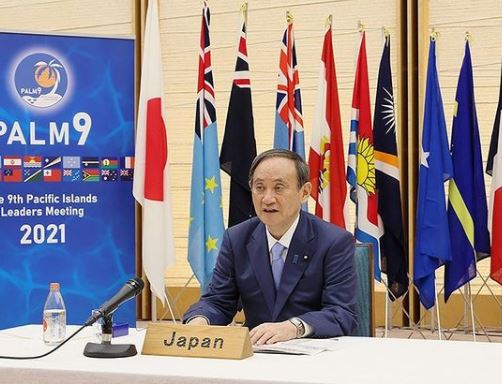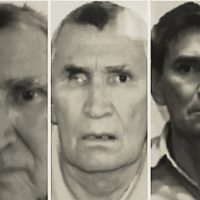Japanese Prime Minister Yoshihide Suga will leave this month, opening up the presidential election for the ruling Liberal Democratic Party – a vital race that could set the tone for an approaching lower house campaign. He announced his intention to resign on Friday, amid rising criticism of his handling of the COVID-19 pandemic.Suga was born in Ogachi (now Yuzawa) to a strawberry farming family. Since 2020, how much money has Yoshihide Suga amassed as Japan’s PM? Scroll down to get all the information regarding Yoshihide Suga net worth, earnings, income, family, wife, married, and many more:
How much is Yoshihide Suga net worth, earnings and income?

He is a Japanese politician who has served as the country’s prime minister since September 2020. The Prime Minister of Japan earns a total of 40,490,000 ($377,180) per year. He will step down as Prime Minister this month amid mounting criticism of his handling of the COVID-19 outbreak. From 2012 to 2020, he served as Prime Minister Shinzo Abe’s Chief Cabinet Secretary. The Chief Cabinet Secretary earns $20,916,000 ($190,181.87) per year. Suga worked in this position for eight years. As a result, he has made around 167,328,000 dollars ($1,521,454.96). As a result, Yoshihide Suga net worth of more than $18 million.
Read More: The Canadian Tennis player Denis Shapovalov net worth, wife
The self-made politician was a driving force behind Japan’s “hometown donation” system, which allowed taxpayers to deduct money donated to local governments. In August 2007, he was replaced by Hiroya Masuda in a cabinet reshuffle. Suga issued a state of emergency in the Tokyo metropolitan area and three surrounding prefectures in January 2021, the first such declaration in Japan since April 2020. Employees have been encouraged to work from home, and people have been advised to avoid non-essential outings; nevertheless, schools have remained open during the emergency. Soga has promised to pay up to 1.8 million dollars per month to each restaurant that agrees to reduce its operation hours.
Yoshihide Suga family: He was born to a family of strawberry farmers in rural Akita Prefecture
Suga was born in Ogachi (now Yuzawa), a rural district in Akita Prefecture, to a strawberry farmer family. He is raised by his parents Father- Wasaburo (Strawberry farmer) and mother Tatsu (school teacher). After graduating from Yuzawa High School, he relocated to Tokyo. In 1973, he graduated from Hosei University with a Bachelor of Laws degree. Hosei was chosen by Suga “because it was the cheapest choice available,” and he “paid his tuition by working in a cardboard factory in Tokyo.”
Suga began his political career as an aide to Representative Hikosaburo Okonogi in 1975. Shortly after graduating with a Bachelor of Laws, before being elected to the Yokohama Municipal Assembly in 1987. Suga was elected to the House of Representatives in 1996 as a member of the Liberal Democratic Party, representing Kanagawa’s 2nd district (LDP). He is a self made politician.
Who is Yoshihide Suga wife Mariko? Who are his children?

Suga is happily married and the father of three sons. Mariko, his wife, is the sister of one of his former coworkers at Hikosaburo Okonogi’s workplace. Seijoh, the eldest son, is a former Tohokushinsha Film director (discharged in Feb. 2021). The couple has persevered through every storm and difficulty that life has thrown their way. And their love has remained strong and loving. He has a happy family along with his wife and three adult sons.
Suga follows a regular fitness routine that involves 100 situps and 40 minutes of walking in the morning and 100 situps in the evening. After a doctor instructed him to lose weight, he began this program and lost 14 kg (31 lb) in four months. He’s also an avid reader who, despite his busy schedule, reads all of the main newspapers every day. When Suga was in college, he used to practice karate. He is a third dan black belt holder.
Does Japan have a president?
There is no president in Japan. The Prime Minister of Japan is in charge of the country’s executive branch. The Prime Minister is the head of the Cabinet and is chosen by the National Diet, the legislative body. Ministers of State make up the Cabinet, which the Prime Minister can appoint or dissolve at any moment.
Also Read: American tennis player Reilly Opelka net worth: earnings and salary
Although it is explicitly stated as the source of executive power, it is primarily wielded by the Prime Minister in practice. Yoshihide Suga is Japan’s current Prime Minister. He was chosen to the presidency of the ruling Liberal Democratic Party on September 14, 2020. (LDP). Following high disapproval polling months before the federal election, Suga announced on September 3, 2021 that he will resign as leader of the Liberal Democrats. On the 30th of September, a day after the Liberal Democratic leadership election, he will resign.
Who will be the president of Japan?
Following high unpopularity polling months before the federal election, Suga announced on September 3, 2021 that he will quit as leader of the Liberal Democrats. On the 30th of September, a day after the Liberal Democratic leadership election, he will quit. Taro Kono, the Minister of Regulatory Reform, and Shigeru Ishiba, the former party Secretary-General, are both popular in surveys on the next president.
Taro Kono, 58
Kono, who oversaw Japan’s problematic vaccination launch, is high on voters’ wish list of MPs to succeed Suga. Taro, a Georgetown University graduate and fluent English speaker, has served as foreign and defense ministers, as well as holding the administrative reform post. Kono, a member of influential Finance Minister Taro Aso’s faction, has not said if he plans to run for president.
Shigeru Ishiba, 64
Ishiba, a former defense minister, often performs high in voter polls but is unpopular among party lawmakers. Ishiba, a soft-spoken security expert who was a rare LDP opponent of Abe while he was in government, has also handled ministries for agriculture and revitalizing local economies. In 2012, he beat Abe in the first round of a party election because to tremendous grassroots support. But he lost in the second round when only MPs were allowed to vote. Since then, he’s lost two more times.
Ishiba has criticized the Bank of Japan’s ultra-low interest rates for harming regional banks. And has advocated for increased public works expenditure to address growing inequality.
Who are the Current contenders for Prime Minister after Suga?
Yoshihide Suga, whose popularity is in shambles ahead of a general election, announced his resignation on Friday, paving the way for his replacement as prime minister. Here are the names of the candidates for Japan’s next prime minister.
Fumio Kishida, 64, a former LDP policy chief who has announced that he will run
Kishida, a former foreign minister, had been tipped as the potential successor to Shinzo Abe, who stepped down last September, but the low-key legislator from Hiroshima often performs low in polls. In last year’s party leadership election, he came in second. In contrast to Suga, who has emphasized self-reliance, Kishida advocated for lowering income gaps and vowed to help the economically vulnerable, like employees in non-regular employment and women, while announcing his candidacy.
Also Read: American Crime Story actress Beanie Feldstein plays Monica Lewinsky
He has stated that he is running to prove that the LDP “listens to the people and gives broad choices, as well as to defend our nation’s democracy,” a remark that has been seen as a critique of Suga’s leadership style.
Ex-Internal Affairs Minister Sanae Takaichi, 60
Takaichi, a former internal affairs minister and Abe disciple, has stated her aspiration to become Japan’s first female prime minister, promising to implement policies to counter China’s technological threat and rebuild the economy. Takaichi stated that she wants to work on topics that had been left unfinished by previous administrations, such as achieving 2% inflation and enacting laws “that prohibits the leakage of sensitive information to China.” However, it is unclear whether she will be able to secure the required 20 legislators to contest in the leadership election.


















Recent Comments